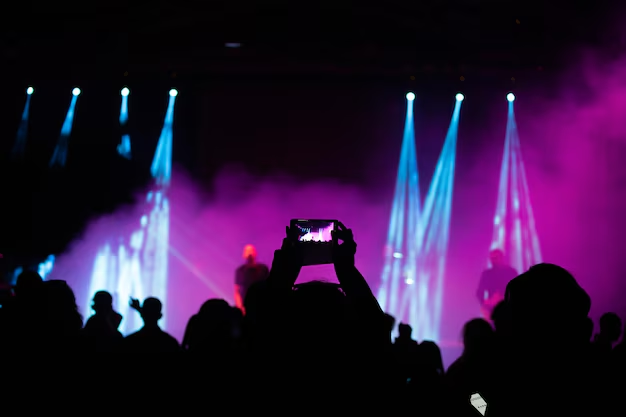Entertainment in the Digital Age: How Technology is Shaping Our Viewing Habits
The entertainment industry has witnessed a seismic shift in recent years, thanks to advancements in technology. What once relied heavily on traditional mediums such as television, cinema, and radio is now increasingly driven by digital platforms. The growth of the internet, streaming services, mobile devices, and social media has reshaped how we consume entertainment, offering us unprecedented control over what, when, and how we view content. This article explores the impact of technology on our viewing habits and how it has transformed the entertainment landscape.
The Rise of Streaming Services
The most significant shift in entertainment consumption over the last decade has been the rise of streaming services such as Netflix, Amazon Prime Video, Hulu, Disney+, and YouTube. These platforms have replaced traditional cable and satellite TV, offering viewers the freedom to watch what they want, when they want, on a wide variety of devices.
Gone are the days of waiting for a specific time slot to catch your favorite TV show or movie. Streaming services offer vast libraries of content, with the ability to watch entire seasons of shows in one sitting. This “binge-watching” culture has become the norm, transforming how series are produced. With platforms like Netflix, HBO, and Amazon investing in original content, audiences now have access to high-quality TV shows and films on-demand, disrupting the traditional model of network television.
The ability to watch content across different devices – smartphones, tablets, laptops, smart TVs – has made entertainment more accessible and portable. Streaming has given us the flexibility to watch anywhere, from the comfort of our living rooms to on the go, making traditional TV viewing increasingly obsolete.
Social Media and User-Generated Content
Social media platforms like Instagram, TikTok, and Twitter have also become integral parts of the entertainment ecosystem. They have not only changed how we interact with entertainment but have also allowed a whole new generation of creators to emerge. Social media is now a platform for entertainment itself, where influencers, celebrities, and even everyday users share content ranging from dance challenges to comedy skits, makeup tutorials, and educational videos.
The rise of platforms like TikTok, in particular, has reshaped the entertainment industry. Short-form video content has gained immense popularity, attracting millions of viewers and allowing content to go viral in a matter of hours. In fact, social media has created a space where anyone with a smartphone can become a content creator, democratizing entertainment production and distribution.
Influencers have become cultural icons, and brands have leveraged social media platforms to engage with audiences in new and creative ways. User-generated content has grown into an entertainment powerhouse, and social media plays a crucial role in shaping viewing habits by offering real-time, interactive experiences.
Personalization and Algorithms
Technology has also made entertainment more personalized than ever. Streaming platforms use sophisticated algorithms to recommend content based on users’ viewing history. These personalized recommendations help viewers discover new movies, shows, and music that align with their tastes, making it easier to find content they’re likely to enjoy without endless scrolling or searching.
For example, Netflix’s recommendation system suggests TV shows and films based on the content you’ve already watched, while Spotify creates personalized playlists based on your listening habits. These algorithms enhance the user experience by tailoring content to individual preferences, which has helped keep audiences engaged and loyal to these platforms.
However, this personalization has a flip side. Critics argue that the heavy reliance on algorithms may lead to the “filter bubble” effect, where people are only exposed to content that aligns with their interests and not exposed to diverse perspectives or genres.
Mobile Entertainment: Entertainment On-the-Go
In the past, watching movies or TV shows was something that happened in the living room, on the big screen. Now, entertainment is everywhere, thanks to smartphones and tablets. People can watch their favorite shows while commuting, waiting in line, or traveling on business trips. Mobile entertainment has made it possible to access content at any time, transforming how we consume media.
Streaming apps like Netflix, Disney+, and YouTube are designed to work seamlessly on mobile devices, allowing users to enjoy their favorite content on a variety of screens. In addition, the rise of mobile gaming has also contributed to this shift in consumption habits, as millions of people now play games on their smartphones during their free time.
This mobile revolution has made entertainment more flexible and accessible, appealing to viewers who want instant gratification and the ability to consume content anywhere and anytime.
The Emergence of Virtual Reality (VR) and Augmented Reality (AR)
The next frontier of entertainment is being shaped by virtual reality (VR) and augmented reality (AR), which promise to create more immersive and interactive experiences. While still in its early stages, VR has the potential to revolutionize how we experience entertainment, especially in gaming, film, and live events.
Virtual reality offers users the ability to step inside a digital world and interact with it in real-time. For example, VR gaming has become an exciting and immersive experience, with games like “Beat Saber” and “Half-Life: Alyx” offering interactive and visually captivating gameplay. In film, VR technology can transport viewers into the story, allowing them to engage with the narrative in a completely new way.
Similarly, augmented reality blends the digital world with the real one. Pokémon Go is one of the most famous examples, where players interact with virtual characters overlaid on real-world environments. As AR and VR technologies continue to develop, we can expect entertainment to become even more engaging and immersive.
FAQs:
- How has streaming changed the entertainment industry? Streaming services provide on-demand access to a wide range of content, allowing users to watch movies and TV shows anytime, anywhere, significantly altering traditional TV and film viewing.
- What role does social media play in entertainment? Social media allows users to create and share content, giving rise to influencers and viral trends that shape modern entertainment and viewing habits.
- How do algorithms influence our viewing choices? Algorithms recommend content based on viewing history, personal preferences, and behavior, making it easier to discover new shows, movies, and music.
- Can VR and AR change entertainment experiences? Yes, both VR and AR are expected to offer immersive and interactive experiences that change the way we play games, watch films, and attend live events.
- How has mobile entertainment impacted viewing habits? Mobile entertainment allows people to access content on-the-go, transforming how and when people consume movies, TV shows, and games.
- Is traditional TV still relevant in the digital age? While streaming platforms have surpassed traditional TV in popularity, traditional broadcast television still plays a role, especially in live events like news and sports.
- What is the future of entertainment in the digital age? The future will likely see more personalized content, immersive technologies like VR/AR, and further integration of social media and user-generated content.
Conclusion
Technology has reshaped the entertainment industry in ways that were once unimaginable. From streaming services offering on-demand content to the rise of social media and mobile entertainment, the digital age has given consumers more power and flexibility in how they access and enjoy media. With the ongoing advancements in VR, AR, and personalized algorithms, the future of entertainment promises even more exciting innovations. As technology continues to evolve, so too will the way we experience entertainment, offering new possibilities for engagement, immersion, and interactivity.
Key Takeaways:
- Streaming platforms have revolutionized on-demand viewing, replacing traditional TV and cable services.
- Social media and user-generated content have created new avenues for entertainment and engagement.
- Personalized content recommendations based on algorithms enhance the user experience.
- Mobile entertainment has made content accessible anytime, anywhere.
- Emerging technologies like VR and AR are set to provide immersive, interactive entertainment experiences.

